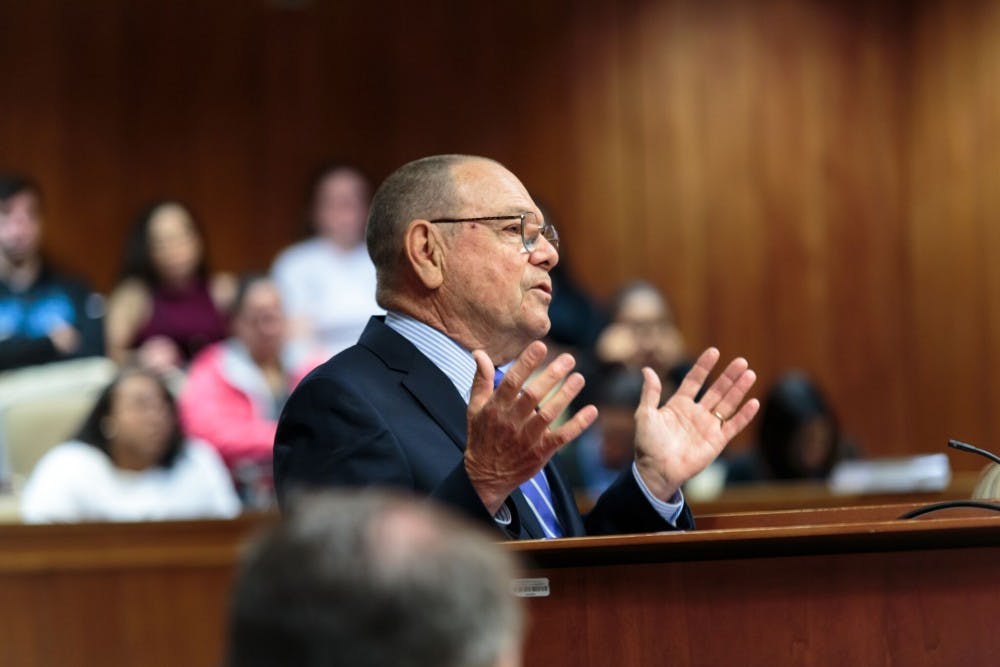The North Carolina Court of Appeals heard oral arguments yesterday at North Carolina Central University for the appeal of a 2017 public records decision in favor of the University in a case against The Daily Tar Heel.
In November 2016, the DTH sued UNC to release the names, offenses and disciplinary actions taken by the University against students or faculty who committed instances of sexual misconduct during their affiliation with UNC. The appeal comes after a North Carolina Superior Court ruling in May 2017 deemed the disclosure of the records was at the University’s discretion.
Hugh Stevens, the partner from Stevens Martin Vaughn & Tadych, PLLC handling the case, filed the appeal in September 2017.
Senior Deputy Attorney General Stephanie Brennan, who represents the University, argued Family Educational Rights and Privacy Act (FERPA) states the University may or may not choose to disclose the records the DTH requested, trumping North Carolina’s open public records laws.
One of the judges asked Brennan three times whether releasing the records would result in a violation of FERPA. She responded that while it wouldn’t entail a violation, it couldn't be mandated.
Brennan said the release of information requested would interfere with the University’s handling of sexual assault and sexual harassment proceedings under federal law Title IX.
“The University has taken great care to exercise its discretion, and in general, it has determined that is not appropriate or proper or a good idea to release this information for many reasons,” she said.
Brennan emphasized that protecting the perpetrator’s identity in a campus community protects the victim’s identity. According to an affidavit submitted by UNC to the court, both parties are frequently linked to each other.
“Once the identity of the responsible party is public, in the age of Google and social media, it will not be difficult for people to put two and two together,” she said.




